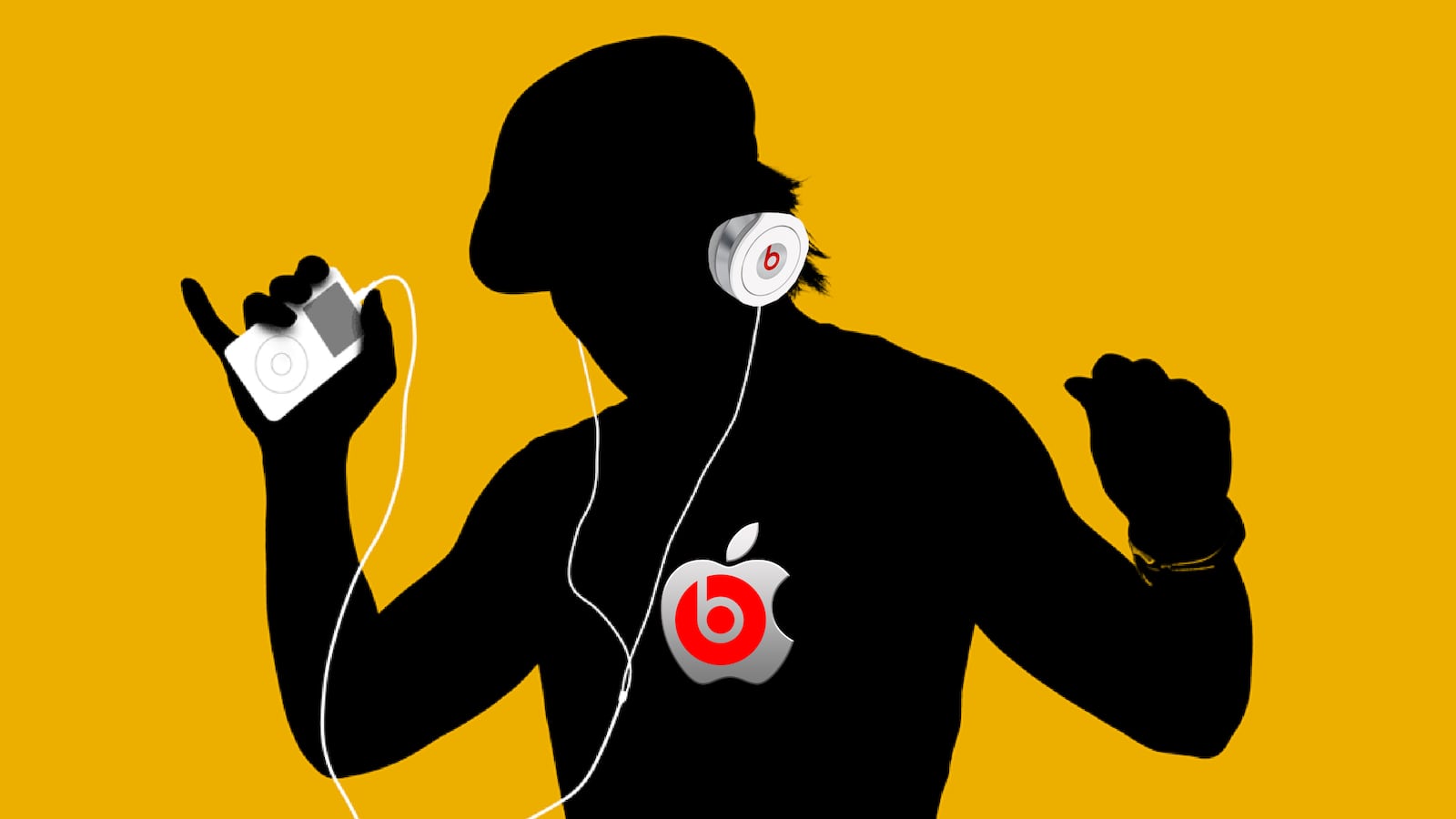People in the entertainment industry have long wondered what Apple will do with all that money in its bank accounts. The company is sitting on cash and investments totaling around $160 billion—that’s more money for ready spending than even the federal government holds in its coffers. With that mountain of moolah, Apple could buy out the largest entertainment company in the world, Disney (market cap $145 billion), with little or no borrowing required. Or Apple could acquire all of the major record labels—or at least as many as the antitrust regulators allow—and still have plenty of jack left over.

Apple has kept us guessing for a long time. This company has never been a big believer in growth by acquisition. Our Cupertino overlords have confidence in their own development team—and rightly so given the results!—apparently believing, like your grampa always said, that anything worth doing is worth doing yourself. But, finally, Apple is biting the bullet and is allegedly writing a big check to acquire another established player in the music business.
Yet the choice is a surprising one. Beats Electronics, founded by Dr. Dre and Jimmy Iovine, first made its mark selling its super high-end headphones—great hardware, to be sure, but hardly arcane technology that Apple couldn’t develop itself. And, increasingly, Beats has been betting its future on streaming music, a crowded field with more than a dozen high-profile competitors battling over the consumer’s ears, including nimble startups such as Spotify and Pandora as well as big bruisers like Google and Sony. Once again, Apple has all the know-how to enter, and dominate, this market without making an acquisition. So why buy out Beats?
Yet the most interesting angle of this story is what Apple isn’t doing. Instead of investing in the creative end of the music business, and the intellectual property represented by the songs themselves, Apple is doubling down on controlling access to the end-user.
In short, Apple has apparently concluded that the winner in the music business will be the company that owns the last centimeter in the distribution channel—that place where the songs reach the physical body of the consumer. It may be a virtual world, but it will be run by the handheld device in the listener’s pocket or, perhaps, the headset delivering music to captive ears.
This is not just a bold move, but a repudiation of the whole history of the entertainment industry. The conventional wisdom has long been that all the excitement, and most of the profit, in music is driven by the creative side of the business. The artist’s vision is unique and irreplaceable, so the logic goes, while distribution is a fool’s game, easily imitated by competitors who will drive down your margins and probably put you out of business.
For most of my lifetime, that proved true. Distributors and retailers of entertainment and consumer electronics operated on razor-thin margins, and many went bankrupt. But the companies that held rights to the music, movies, and other “content” flourished even as their downstream distributors struggled. And for a very good reason: Consumers cared deeply about the content, but not so much about where they acquired it.
Back in my 20s, before I focused full-time on music, I had a newly-minted MBA from Stanford, and advised Fortune 500 companies in Silicon Valley as a professional with McKinsey and the Boston Consulting Group. I can’t stress how much distribution and retailing were scorned during that period. This was true of all industries, but especially those built on creativity and innovation. You wanted to be upstream with the artists, not downstream with the consumers.
But I worked alongside some smart people who thought they could change the rules of the game, and they launched a highly funded business called Personics, essentially the iTunes of its day. The company created customized mixtapes at the point-of-sale with its own proprietary technology. Personics literally invented the high-tech playlist. And what they did get for it? Absolutely nothing. Personics flamed out in one of the biggest busts in venture capital history. The music industry had all the power back then, and wasn’t going to let some upstart tech company siphon off high margins from its intellectual property.
But Apple has somehow managed to change all this—in fact, it has turned all the rules of the music business on their head. Now, access to the consumer is where profits are made, and artistry is getting commoditized. Many pundits thought Apple would eventually acquire record labels and movie studios, and create a beautiful marriage between Silicon Valley and Hollywood. But they’ve been proven wrong. The conflict between Silicon Valley and Hollywood may in fact be finished—but only because Steve Jobs and his heirs have won the war.
How did this happen? The music industry itself deserves much of the blame for its sorry state. Instead of investing in new technologies, the record labels tried to kill them. If the major labels had cut a deal with Napster years ago—when they had all the leverage in the world to extract sweet terms—they could have avoided their evisceration at the hands of iTunes and Spotify. If they had developed their own web interface, they could have controlled access to consumers, and profits would have stayed within the music business and not flowed into the bloated bank accounts of tech companies.
Instead, the brilliant music execs relied on their favorite formula, the three L’s: litigation, lobbying, and legislation. Why worry about technological interfaces when you can influence Congress to pass laws beyond all sense and reason? Patents, may I remind you, expire after 20 years, but copyrights to recordings can be enforced for a century or more. Yes, that’s correct, if you cure cancer, you can make money off it for just two decades, but Joe Jackson’s song “Cancer” will be under copyright until long after you and I are dead from the disease. Record labels didn’t need to worry about changing with the times—they controlled the legal rights to the music, and could sue anyone who didn’t play by their terms.
And that’s exactly what they did. Over the years, the lawsuits and threats mounted higher and higher. Get your songs from the wrong place, and it might cost you tens of thousands of dollars. Just a few days ago, a Cleveland club owner got sued by BMI for $1.5 million, because a cover band played 10 tunes without a license. Even the harsh RICO statute, designed to make life miserable for crime syndicates, got turned into just one more tool of copyright enforcement.
Companies should never let lawyers set their business strategies. And now the music industry has learned the hard way the cost of responding to a technological revolution with only the 3 L’s for protection. Apple developed the best music interface, and the labels just watched it happen. Apple also created the preferred devices for accessing this interface, and the music it channeled. Before they figured out what had happened, the labels found themselves living in a brave new world in which distribution trumped artistry, and all the song copyrights and publishing rights in the world only got them a few pennies per play.
So, don’t believe the “experts” who tell you that Apple is making a mistake by acquiring Beats. Yes, they are correct when they say that Beats’s expertise is not much different from what Apple is already doing on its own—namely running a music interface and selling expensive consumer equipment to play songs. But this is precisely why Apple is making the investment. They want to add Beats’s streaming to their iTunes capabilities, and pick up another high-priced gadget that dominates the end-use moments when music is consumed. Apple is committed to dominating that last centimeter, and Beats owns some real estate on your body that the folks in Cupertino covet.
I especially like the symbolic valence of this deal. If competition in the music business is really now a literal battle to control consumers’ ears, what could send a stronger signal than buying the hippest headphones company of them all? Moreover, I suspect that the visionaries at Apple are paying close attention to Google’s ambitions for Google Glass, and this move is, at least in part, a calculated response. The market for handheld devices is now crowded with competitors. But your head is undeveloped land, and more than one tech company wants to stake a claim.
So I applaud Apple. Silicon Valley has outsmarted Hollywood, and deserves some credit for how it has played the game. But I still feel the most sympathy for the creative talents in the music business, who want to be paid in real money, but instead are increasingly forced to settle for “likes” and “views.” They deserve better.
If the folks who live upstream in this threatened ecology, namely the labels and artists, want to improve their precarious habitat, they have two options. First, they can enter the battle for that last centimeter—that sweet spot where music meets human biology—and, yes, they still might be able to pull it off. For all their virtues, iTunes and the streaming services have many flaws and limitations. The labels could, in theory, do a better job than Apple or Beats at streaming and selling downloads. The other option is to create so much excitement with the music itself, breaking out of tired formulas and turbocharging the artistry of the “content,” that the songs resist commoditization. Who knows, if the creative side of the business made the right moves, consumers might just decide that their first allegiance is to the music, not the fancy device that plays it.






